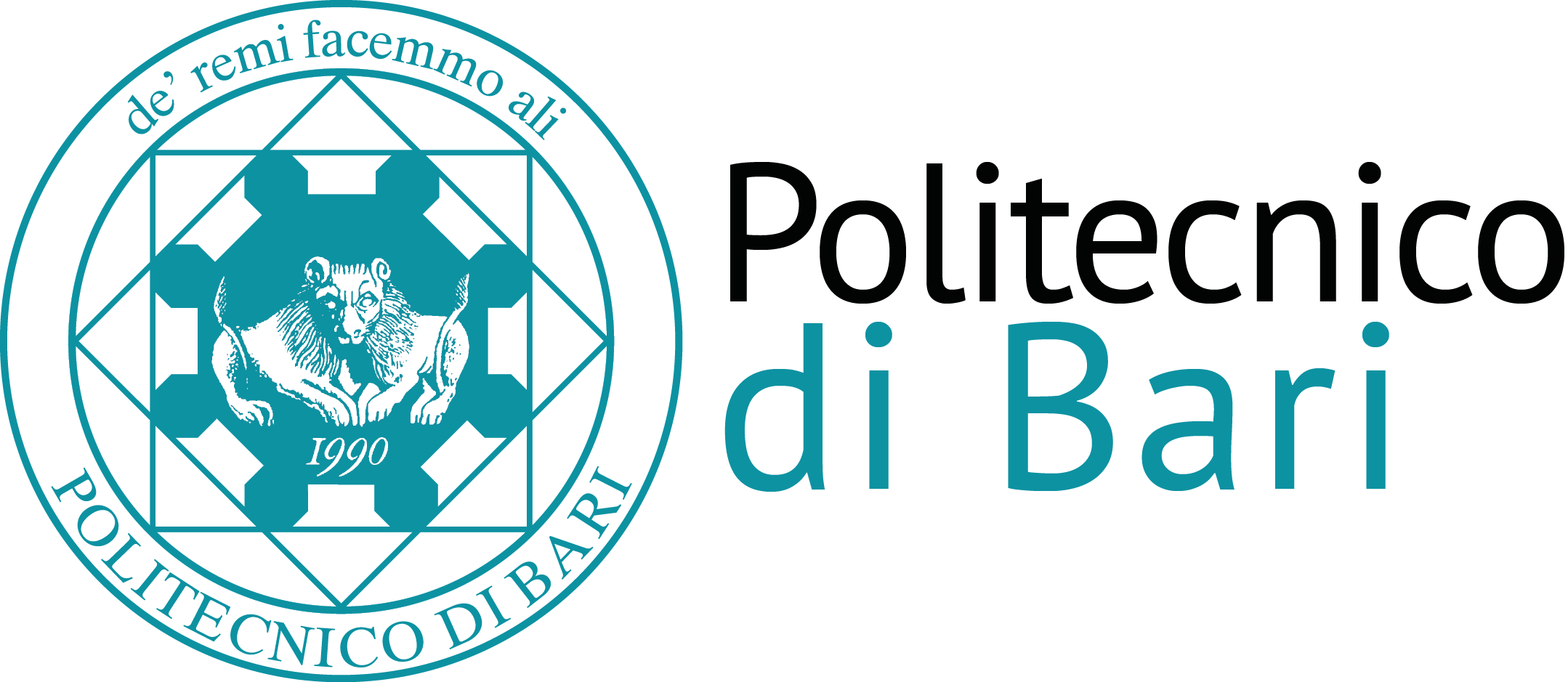
Information
+39 080 596 3843
ti.ab1770011241ilop.1770011241dhp@81770011241onala1770011241tac.a1770011241
Curriculum Vitae (english)
Publications
Angelo CATALANO
Ph.D. Candidate
Angelo Catalano earned his B.Sc in Mechanical Engineering from the Polytechnic of Bari, Italy, in 2022. He then completed his M.Sc. in Mechatronics and Robotics Engineering with honors in 2024 through a double degree program between New York University, USA, and the Polytechnic of Bari. He was a Fellow Researcher at the Soft Robotics for Human Cooperation and Rehabilitation lab at the Italian Institute of Technology (IIT) in Genoa, where he conducted a study on pneumatic soft robotic prosthetic hands. Currently, he is a Ph.D. candidate at the Polytechnic of Bari, holding a scholarship titled “Robot-as-a-service for the Digital Industry” under the supervision of Prof. Cacucciolo and Prof. Dotoli.
Publications
2025
- Sassanelli, C., Sullivan, B. P., Sindoni, E., Cambertoni, R., Carli, R., Catalano, A. R., Lucchini, F., Costantino, F., Dughiero, F., Dotoli, M., Digiesi, S., D’Adamo, I., Settineri, L. & Terzi, S. (2025) The Enhanced Factory for Extra-Terrestrial Space Technology Operations: Conceptualization and Scenarios’ Definition. IN Springer Proceedings in Mathematics and Statistics, 483.139-150. doi:10.1007/978-3-031-80785-5_11
[BibTeX] [Abstract] [Download PDF]The Enhanced Factory for Extra-terrestrial Space Technology Operations (EFESTO) project presents a strategic approach for establishing sustainable manufacturing and recycling operations in Low Earth Orbit (LEO), aiming to mitigate launcher constraints, support long-duration missions, increase space stations independence from Earth resupply and enhance circularity of the resources in space. Utilizing Model-Based Systems Engineering (MBSE), this research aims at identifying and investigating the enabling technologies for in-space manufacturing (ISM) and waste management in microgravity environments. This paper details the comprehensive process, from conception to implementation, including environmental impact assessments and navigating market uncertainties. Preliminary findings demonstrate the project’s capacity to bolster space operations, indicating a shift towards a sustainable, service-oriented economy in space. The systematic structure of the project addresses a multitude of challenges, from the development of appropriate space technologies and waste management systems to strategic market and regulatory considerations. Ultimately, EFESTO aims to contribute significantly to extra-terrestrial development, enhancing the resilience and adaptability of space operations while promoting a circular economy and compliance with evolving space standards. © 2025 Elsevier B.V., All rights reserved.
@ARTICLE{Sassanelli2025139, author = {Sassanelli, Claudio and Sullivan, Brendan P. and Sindoni, Elia and Cambertoni, Riccardo and Carli, Raffaele and Catalano, Angioletta R. and Lucchini, Francesco and Costantino, Francesco and Dughiero, Fabrizio and Dotoli, Mariagrazia and Digiesi, S. and D’Adamo, Idiano and Settineri, Luca and Terzi, Sergio}, title = {The Enhanced Factory for Extra-Terrestrial Space Technology Operations: Conceptualization and Scenarios’ Definition}, year = {2025}, journal = {Springer Proceedings in Mathematics and Statistics}, volume = {483}, pages = {139 - 150}, doi = {10.1007/978-3-031-80785-5_11}, url = {https://www.scopus.com/inward/record.uri?eid=2-s2.0-105001340795&doi=10.1007%2F978-3-031-80785-5_11&partnerID=40&md5=77db477c5db67d75c3b35091d09236bc}, affiliations = {Politecnico di Bari, Department of Mechanics, Bari, Italy; Politecnico di Milano, Department of Management, Milan, Italy; Thales Alenia Space Italia, Rome, Italy; Politecnico di Bari, Department of Electronic and Information Engineering, Bari, Italy; Politecnico di Torino, Department of Management and Production Engineering, Turin, Italy; Università degli Studi di Padova, Department of Industrial Engineering, Padua, Italy; Sapienza Università di Roma, Control and Management Engineering, Rome, Italy}, abstract = {The Enhanced Factory for Extra-terrestrial Space Technology Operations (EFESTO) project presents a strategic approach for establishing sustainable manufacturing and recycling operations in Low Earth Orbit (LEO), aiming to mitigate launcher constraints, support long-duration missions, increase space stations independence from Earth resupply and enhance circularity of the resources in space. Utilizing Model-Based Systems Engineering (MBSE), this research aims at identifying and investigating the enabling technologies for in-space manufacturing (ISM) and waste management in microgravity environments. This paper details the comprehensive process, from conception to implementation, including environmental impact assessments and navigating market uncertainties. Preliminary findings demonstrate the project’s capacity to bolster space operations, indicating a shift towards a sustainable, service-oriented economy in space. The systematic structure of the project addresses a multitude of challenges, from the development of appropriate space technologies and waste management systems to strategic market and regulatory considerations. Ultimately, EFESTO aims to contribute significantly to extra-terrestrial development, enhancing the resilience and adaptability of space operations while promoting a circular economy and compliance with evolving space standards. © 2025 Elsevier B.V., All rights reserved.}, author_keywords = {Circular manufacturing; In-Space Manufacturing; Low Earth Orbit; On-orbit Servicing; Sustainable manufacturing}, keywords = {Circular economy; Microgravity processing; Smart manufacturing; Space research; Strategic planning; Sustainable development; Tropics; Waste management; Circular manufacturing; Earth orbits; In-space manufacturing; Low earth orbit; On-orbit-servicing; Scenario definitions; Space manufacturing; Space operations; Space technologies; Sustainable manufacturing; Orbits}, correspondence_address = {C. Sassanelli; Department of Mechanics, Mathematics and Management, Politecnico di Bari, Bari, Italy; email: ti.ab1770011241ilop@1770011241illen1770011241assas1770011241.oidu1770011241alc1770011241}, editor = {Gonçalves dos Reis, J.C. and Junior, M.V. and Oliveira Sant’Anna, A.M. and Mendonça Freires, F.G. and Garcia Barbastefano, R.}, publisher = {Springer}, issn = {21941017; 21941009}, isbn = {9783031848681; 9783031894978; 9783031953804; 9789819630974; 9783031852879; 9788132223009; 9783030679958; 9783319185729; 9783319940595; 9789819748754}, language = {English}, abbrev_source_title = {Springer Proc. Math. Stat.}, type = {Conference paper}, publication_stage = {Final}, source = {Scopus}, note = {Cited by: 2; All Open Access; Green Accepted Open Access; Green Open Access} }



